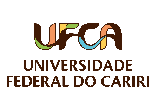Banca de QUALIFICAÇÃO: TATIANA DA SILVA ARRUDA
Uma banca de QUALIFICAÇÃO de MESTRADO foi cadastrada pelo programa.STUDENT : TATIANA DA SILVA ARRUDA
DATE: 05/08/2025
TIME: 17:00
LOCAL: Sala M01
TITLE:
Food consumption in creative cities through UNESCO gastronomy in Brazil.
KEY WORDS:
Food consumption; Creative Cities of Gastronomy; Urban food systems.
PAGES: 66
BIG AREA: Ciências Sociais Aplicadas
AREA: Administração
SUBÁREA: Administração de Empresas
SPECIALTY: Mercadologia
SUMMARY:
Food has gained prominence in contemporary urban development agendas, mainly due to its ability to bring together culture, sustainability, and tourism. Within the UNESCO Creative Cities Network, gastronomy is recognized as a strategic vector for the enhancement of intangible cultural heritage, the strengthening of local economies, and the stimulation of social innovation. In Brazil, the cities of Belém (PA), Belo Horizonte (MG), Florianópolis (SC), and Paraty (RJ) are part of this network in the Gastronomy category, mobilizing their food territories as assets for local development and international projection. In this scenario, understanding urban food consumption becomes relevant to analyze how food practices are experienced, documented, and institutionalized in contexts recognized for their gastronomic cultures. Despite the growth of discussions about food in cultural and tourism policies, systematic analyses of food consumption in cities that are part of the UNESCO Network are still limited. The literature lacks studies that articulate concrete practices, institutionalization strategies, and models applicable to the reality of countries in the Global South. In particular, Brazil lacks technical instruments that contribute to systematizing local experiences and guiding new applications to the Network, a gap that this project seeks to address. The overall objective of the research is to understand food consumption in the context of creative cities of gastronomy in Brazil, based on three complementary studies. Specifically, it aims to: (i) map and systematize scientific production on food consumption in Brazil published between 2019 and 2024; (ii) characterize food consumption practices and patterns in Brazilian cities already recognized as CCGs, based on secondary data and official documents; and (iii) propose a comparative framework, structured as a technological product, designed to support applications from new cities to the UNESCO Creative Cities Network for Gastronomy. The dissertation will be developed in a multipaper format, consisting of three scientific articles. The first study consists of a scoping review of the national academic literature, with a thematic analysis of the main approaches, methodologies, and theoretical contributions. The second study will use a descriptive approach based on multiple case studies, focusing on the four Brazilian CCGs. Quantitative secondary data extracted from databases such as POF/IBGE, SISVAN, VIGITEL, and TRIA will be used, in addition to institutional documents from the UNESCO Network, allowing for the construction of a comparative matrix between the cases. The third study will present an applied comparative framework, developed based on previous findings and grounded in international references adapted to the national context. The research is expected to contribute to expanding knowledge about food consumption in creative cities of gastronomy, organizing empirical evidence that enables structured comparisons and supports strategic decisions. The proposed framework will seek to bring together operational categories and thematic axes that support cities interested in preparing applications to the UNESCO Network, promoting greater alignment between local practices and international criteria. By integrating documentary analysis, institutional data, and applied proposals, the project aims to contribute both to the field of urban food studies and to the development of tools to support cultural management and urban planning. The systematization of findings may favor the circulation of good practices, institutional strengthening, and the qualification of public policies in territories that articulate gastronomy, culture, and local development.
COMMITTEE MEMBERS:
Externa à Instituição - LUANA LARA ROCHA - UFMG
Externo à Instituição - FRANCISCO VICENTE SALES MELO - UFC
Presidente - BEATRIZ GONDIM MATOS
Interno - DIEGO COELHO DO NASCIMENTO
Externo à Instituição - MAGNUS LUIZ EMMENDOERFER - UFV




